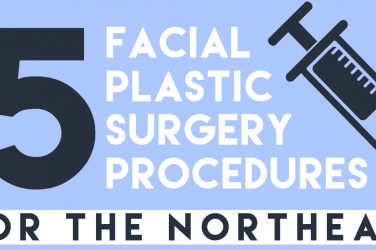If you’ve had at least a year’s worth of experience of college life as a student, you’ll agree that it’s no walk in the park. There are multifaceted issues that learners have to face. Every student is expected to take a required minimum number of courses and finish each of them successfully to be in the safe zone of academic progression and graduate. As the years go by, the difficulty level of the subjects increases. For those who have not been keeping pace, the pressure only piles up. And, some may buck under the intensity and drop out.
But what can keep college students busy and make them feel overwhelmed? Mainly, that’s academic activities. Remember that academic affairs are the primary line of activities that explain why each student is enrolled in their universities. The ultimate goal of being there is to graduate with a degree. That said, whenever a semester is in full swing, students will usually have to take multiple courses, attend lectures, keep up with a conveyor belt of assignments with deadlines, prepare for upcoming tests, and the biggest of them all — final course exams.
The challenges and intensity of such academic activities can only be appreciated when you’ve lived through them. It is a common experience for the majority of students to have several assignments given concurrently with close or even the same deadlines. Juggling between lectures, writing assignments, and non-academic commitments can quickly leave students with little or no time to focus on one task. Consequently, one portion of students would prefer to leave out the less relevant coursework. Some may simply cut corners and copy from their fellow students while others may even buy college papers online.
But you have to take a step back and wonder, “What are the downsides of putting a lot of effort just to keep up with the demands of the academic system and succeed?” The consequences may come in various ways, but the most personal of them would be the impact on your health.
For the determined students who spend most of their time focused on studying, doing assignments and preparing for tests and exams, that unbalanced immersion can take a toll on their health. Mental breakdown, physical exhaustion, sleep deprivation, poor diet, and weight loss are just some consequences you can face.
As admirable as it may be, academic work needs to be done with balance.
Excessive work can result in dangerous health conditions and even be fatal. You don’t want to lose your health or life because you’re studying for a degree. Ask yourself what will happen when you start your career? What is the purpose of your education? The short lesson here is that you need to take care of your health by finding a balance between your studies and other commitments.
Accordingly, there are helpful things you can do to stay healthy as you pursue your college education. We have listed and explained five such tips below.
1. Get Regularly Involved in Physical Exercise
Keeping your body healthy through regular exercise is a proven way to avoid or minimize the risk of numerous health problems. Besides, it also brings various health benefits, such as improved sleep, weight loss (via fat burn), a happier mood, and toned body physique. One significant long-term benefit is a greater life span.
You can’t ignore the impact exercising can have on your life. Accordingly, set aside some time (an hour or two) on specific days of the week to hit the gym and do some jogging or running. You should also walk as often as possible. Your specific exercise regimen would depend on what you want to achieve in the short term, e.g., weight loss, bigger arm muscles, etc.
Put in some efforts to learn what routine would be appropriate for your goal. Alternatively, you can hire a personal trainer at the gym who will help with a fitness program for you and guide and encourage you during each workout session. What’s more? You can even make this more social by joining a fitness group.
Bear in mind that it’s not enough to exercise actively for several weeks or months and then stop. It has to be a regular activity for you to get long-term benefits. But make sure to sleep a minimum of 6 hours each day so that the exercises you’re doing can give you the best results.
2. Pay Attention to What You Eat
Nutrition is a crucial aspect of strong health. You must have a well-balanced diet that keeps your body functioning properly. Accordingly, as part of your daily intake, be sure to eat fiber-rich foods like beans, nuts, and vegetables and protein-rich ones like meat, eggs, and cheese.
Carbs should also be part of your diet but controlled closely. Also, include various fruits in the mix. As you manage your nutrition, applying moderation in quantity is crucial. Eat at least twice a day and never neglect your breakfast because you’ll need its energy to get through the day. Although the ideal amount is often debated, you should find what works for you and drink enough water daily to avoid dehydration.
Watch the junk foods you eat. Being salty snacks, soda drinks, pizza, sandwiches, or hamburgers may seem readily available, but they will do more harm than good when consumed regularly. Avoid alcohol, especially when you have mattering activities to prepare for.
If you already have a workout regimen, make sure you stick with the required diet plan as well.
3. Take Regular Breaks To Clear Your Mind
Studying or doing assignments confines you to a fixed location (sitting in front of your computer and textbooks). But did you know that sitting for hours is dangerous for your body? It can result in increased blood sugar levels and blood pressure and the accumulation of excess body fat around your waist among other health risks.
To avoid the dangers of sedentary postures, take regular breaks during your study sessions. You may decide to do so every 30 or 60 minutes.
Stand up, stretch out, move around, or take a 5-10-minute walk. Ideally, you should spend this short break disengaging your mind from what you’re working on. When you return, you’ll feel refreshed and ready to continue. Additionally, when using your computer a lot, it is good to wear protective glasses that can block out screen glare and harmful radiation.
4. Get Involved In Extracurricular Activities
Music and dance, sports, charity, social outreach, drama and theater, video games, and yoga — find what suits you best. Not only can these activities help you unwind, but they can also boost your brain functions, teach you new things and skills in a fun way, keep your body and mind in balance, help you feel socially connected, and give you a sense of belonging to your immediate college environment.
Another benefit here is the new people you can meet during such social outings. You never know who you’ll find — your future spouse, a business partner, or a faithful friend. In fact, the possibilities are vast. Social interactions usually occur in non-academic settings thereby helping you temporarily take your mind off your studies.
5. Reach Out for Help When Feeling Overwhelmed by Academic Work
Most colleges have student support/help centers where psychologists and other professionals are employed to help students deal with various issues regarding their personal, academic, or college activities and career prospects.
When you feel like being crushed by the fast-paced and stressful nature of academic life, do not shy away from seeking counseling. See your university’s counselors for advice on how to manage the problems you’re facing. They are usually well-trained professionals, so you can be sure of a positive outcome. With their experience of helping other students like you over the years, they are in a good position to tell you how you can tackle your problems.
You can also reach out to family and friends you are comfortable discussing your personal struggles with. Together with the professional student counselors, they form a strong social support structure you can rely on to get through your down times.
Lastly, remember: there’s a saying that “health is wealth” and rightly so. When you are in great health (physically and mentally), everything you aspire to do can be done more readily whether as a student or a career professional. So take the nuggets of self-care you’ve learned here, apply them in your life, and see how things change for the better. Combining the above tips can help you be more productive at managing your studies and achieve your academic goals without studying excessively.







